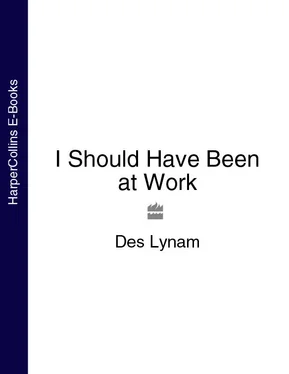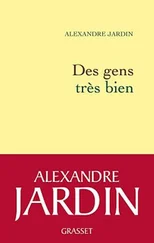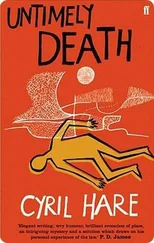Amazingly, several agreed. Even more amazingly, one or two were published.
Seeing my by-line in print had given me a thrill and I began to imagine that sooner or later I would get my break.
And it came, not from print journalism, but from radio.
In those days, to get into the BBC was well-nigh impossible, unless you had either exemplary qualifications or connections. I had neither and it hadn’t even occurred to me to try to breach the citadel at Broadcasting House.
But then I saw a notice in the local paper that the BBC was opening up local stations around the country and that one of the first would be Radio Brighton. It registered with me and a little later, when the station was under way, they began advertising for people who might have an interest in broadcasting to get in touch. I didn’t know anything about broadcasting but I rang them up and, to my utter astonishment, I was invited to come and have a look at the station and try my hand, or rather my voice, in front of the microphone.
A gentleman called David Waine, who was probably no older than me but whose face I recognised from regional television, gave me what transpired to be my audition. Years later, David was to become a very senior figure at the BBC but, at this time, he had given up his television job to embark on a new radio adventure.
‘You have a good voice,’ he said. ‘Very fluent.’ He told me that he would get in touch. He knew of my interest in sport.
I now began to think that my dear mother was pulling some strings for me. The feeling was strong. I was gaining some confidence from the thought, or the fantasy, whichever it was, that I was throwing off my shackles of self-doubt, of concern for the future. Not long after, I found myself in the studio on a Saturday afternoon reading football results and other sports news. It was great fun, entirely unpaid.
In no time at all, under the experienced (he had been in the business for weeks) eye of an amiable chap called John Henty, I was presenting the Saturday night sports desk. Soon I was writing a weekly review of the local press, which involved arriving at the studio at 6.30 in the morning; reading through the three local weekly papers and writing, by hand, a three-minute piece to be voiced live just after the 8 a.m. news bulletin. I was amazed that I could do it at all; but I was also apparently making it interesting and funny and getting a terrific response. The local newspaper editors began paying attention to it, occasionally complaining if they thought I was being harsh on them. I was using their copy for flights of fancy into areas that had little to do with the content in their papers. In short, I was using them as an excuse to write a weekly radio essay. Then I branched into comedy – or at least I and my writing partners thought it was comedy.
Together with Ivan Howlett, still a radio broadcaster, the aforementioned John Henty, Peter Vincent (who went on to be a top comedy writer for The Two Ronnies and others), and a girl singer called Amaryllis, I began putting together and performing in a Sunday half-hour show called How Lunchtime It Is – there was a TV series called How Late It Is that had prompted the idea for the title.
I could do passable imitations of the two leading politicians of the time, Harold Wilson and Edward Heath. Actually they were impersonations of Mike Yarwood doing Harold Wilson and Edward Heath, and ‘they’ appeared in every show. Incidentally, years later I was invited to lunch at Edward Heath’s majestic home in Salisbury. On entering, Ted wondered if I ‘could abide champagne’ – a curious way of posing the question, but I answered ‘Yes, and plenty of it.’ I asked him who had been the most impressive leader he had met down the years. Unhesitatingly, he said, ‘Mao-Tse-Tung.’ ‘But he was a mass murderer,’ I ventured. ‘You’re typically falling into the trap of misunderstanding his position,’ said Ted, an acknowledged Sinophile.
I loved being involved in How Lunchtime It Is. We went into the studio on Sunday mornings to record our offerings, having roped our friends in to be the audience. They laughed more at our attempts at being satirists than at the quality of the content, but these were some of the happiest days of my life. I was becoming fulfilled at last. I was a broadcaster. Unpaid, but I was a broadcaster. My hobby was now interfering with my career.
So, naturally enough, I gave up my career.
Sue and I had rented a small terraced house owned by her father, a local funeral director. He knew I was not overly enthusiastic about my job in insurance and one day he had sat me down and offered me a junior partnership in his business. I think he was mostly thinking about his daughter’s future quality of life, but it was a very generous offer to make. But ‘Des the Funeral Director’ was never going to be, and I politely refused, with much gratitude for his consideration.
Soon after this, I bought my first house for £3,750 (the vast majority of it paid for by mortgage). For that I got a four-bedroom Victorian terraced property with a garden in an old but decent part of town. My move into insurance had been yet another career change, but it was only postponing the inevitable and the shocking death of my mother made me realise that there was no longer anything left to lose. Her passing spurred me on to leave the conventions of a nine-to-five profession. I had been helped in my decision by a veteran local journalist and friend, Jack Arlidge. ‘Fortune favours the brave, Des,’ he had said to me. And so it seemed that everything was telling me to pursue my dream of becoming a journalist.
I discussed it with Sue. I wanted to give up the security of my job, my company car, my preferential mortgage deal and my pension rights, not to mention my income, for a tilt at the windmill of broadcasting. Sue, good girl that she was, was all for it. ‘Time to have a go,’ she said.
It was a brilliant response, and so I gave in my notice, bought a twelve-year-old Volkswagen Beetle from my new colleague, John Henty, for £140 and turned up each day at my new job at Radio Brighton. I got paid per item in guineas. After a few months, my income had slumped to about a tenth of what it had been. Sue was now paying most of the bills from her job as a librarian.
Soon I was expecting reasonable broadcasting standards of myself and others around me. One day, a colleague, fed up with my criticism of the poor quality of a sports item, turned on me: ‘Who do you bloody well think you are, David Coleman?’ he bellowed. ‘No, but the listeners have a right to expect professionalism from any broadcaster they have tuned in to hear or watch,’ I pompously replied. I was crossed off this chap’s Christmas card list straight away, but I knew I was right. What I could not have envisaged was that one day I would take over from David Coleman as the main presenter of Grandstand , a decision about which he was none too pleased.
In the early Eighties I began sharing the programme with Coleman. His period on the show coincided with most of the major events, like the Five Nations Rugby Championship (as it then was), the Grand National and the FA Cup Final. Then I would take over, allowing him to commentate on the athletics championships, his speciality. I had mentioned once or twice that I wouldn’t mind trying one or two of the major outside broadcast events. I had made no firm requests or stipulations. However, after the 1984 Olympics, it was decided that I should be the number one presenter. Coleman remained the athletics commentator and presented A Question of Sport.
But all that was a long time in the future. For the time being I was happy just simply being in local radio. After a couple of months I had managed to get one or two reports sent up to the network in London and they had been well received. Soon after that, I spotted an advert in the BBC in-house magazine. The sports department in London were seeking ‘Sports News Assistants’. Despite my limited experience, I applied. It would be the last job I ever applied for at the BBC.
Читать дальше












